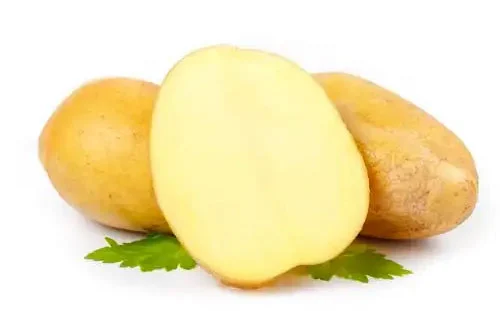How much protein is in an egg vs potato?
When it comes to getting protein, many people compare foods to see which ones have the highest protein content and best fit their dietary needs. Potato protein and egg protein are two different sources that are most commonly found in people's lives. Potatoes are often described as a carbohydrate-rich food, while eggs are often thought of as a source of protein. However, both have their unique nutritional content and benefits that can be very beneficial as part of a balanced diet.

How much protein is in an egg vs potato?
Protein Content in an Egg
There are around 6 grams of high-quality protein in a standard medium-sized egg (about 50 grams). Eggs are a complete protein, meaning they contain all nine essential amino acids, which the body can’t produce on its own. Eggs are a great choice for muscle repair, growth, and general health as they are such a good source. Eggs are also rich in a highly bioavailable form of protein.
Eggs are great because not only can they be easily adapted to any meal (breakfast omelet, salad, sandwiches) they also come in so many different forms. Eggs, though, have more going for them, too, providing other nutrients, such as vitamin D, choline, and selenium, which make eggs a nutrient-dense food.
Protein Content in a Potato
However, potatoes are not usually celebrated for having high amounts of protein and contain a small amount. Around 4 grams of protein can be found in a medium-sized potato (about 150 grams). Potatoes are not complete protein sources, simply because they don’t have all of the essential amino acids. However, potatoes are a solid stand-alone source of protein, but when paired with other protein-rich foods such as beans or dairy, potatoes can make up part of a well-rounded, complete protein intake.
Protein, of course, is combined with an excellent source of complex carbohydrates (potatoes) and their sustained energy. In addition, they are packed with important nutrients like vitamin C, potassium, and dietary fiber to help with immunity, heart health, and digestion.
Nutritional Benefits Beyond Protein
Eggs: Eggs contain important nutrients including protein, the vital nutrient choline, which helps maintain brain health, and the bone crucial vitamin D. Eggs also contain antioxidants, lutein, and zeaxanthin, which are good for the eyes.
Potatoes: A powerhouse of potassium, a mineral that helps regulate blood pressure and muscle function, potatoes are. Vitamin C also supports the immune system and fiber helps with digestion and helps you feel full.
How to Incorporate Eggs and Potatoes in a Balanced Diet?
Breakfast Skillet: Breakfast with Potatoes and vegetables, Scrambled Eggs on top – a protein and energy-filled breakfast.
Egg and Potato Salad: Boiled potatoes mixed with hard-boiled eggs, greens, and a light dressing make it a good side dish or light meal.
Baked Potato with Egg Topping: A simple, filling dinner solution is to place a poached or fried egg on top of a baked potato.
Other Sources of Protein to Consider
Eggs and potatoes are great options for you, but you need to diversify. Lean meats, fish, dairy products, legumes, nuts, and seeds all make up a healthy diet that contributes various amino acid profiles and nutrients.
Different Diets with Eggs and Potatoes
Eggs and potatoes can be incorporated into basically any dietary pattern, including vegetarian, gluten-free, and low-fat. However, they still need to consider how to maintain their nutritional values through preparation methods. For instance, frying potatoes is better than frying them in fat or baking or boiling potatoes; poaching or boiling eggs is better than frying eggs with added fat.
Conclusion
One comparison of protein contents found eggs packed with more protein than potatoes, and the more protein you get the better the quality is. But, although potatoes are not an ideal choice, they do provide important nutrients and are a good way to bring some protein into the meal. Having eggs and potatoes in the diet, together, means you are feeding yourself with all their complementary benefits supporting a balanced, nutrient-rich lifestyle. These versatile foods go down well whether you’re looking to build muscle, get energy, or stay healthy.
If you are interested in, you can email at info@scigroundbio.com or submit your requirement at bottom form.